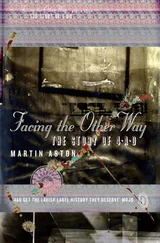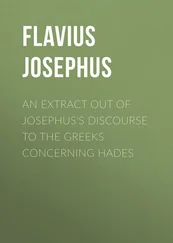Sarah Caudwell - The Shortest Way to Hades
Здесь есть возможность читать онлайн «Sarah Caudwell - The Shortest Way to Hades» весь текст электронной книги совершенно бесплатно (целиком полную версию без сокращений). В некоторых случаях можно слушать аудио, скачать через торрент в формате fb2 и присутствует краткое содержание. Жанр: Иронический детектив, на английском языке. Описание произведения, (предисловие) а так же отзывы посетителей доступны на портале библиотеки ЛибКат.
- Название:The Shortest Way to Hades
- Автор:
- Жанр:
- Год:неизвестен
- ISBN:нет данных
- Рейтинг книги:5 / 5. Голосов: 1
-
Избранное:Добавить в избранное
- Отзывы:
-
Ваша оценка:
- 100
- 1
- 2
- 3
- 4
- 5
The Shortest Way to Hades: краткое содержание, описание и аннотация
Предлагаем к чтению аннотацию, описание, краткое содержание или предисловие (зависит от того, что написал сам автор книги «The Shortest Way to Hades»). Если вы не нашли необходимую информацию о книге — напишите в комментариях, мы постараемся отыскать её.
The Shortest Way to Hades — читать онлайн бесплатно полную книгу (весь текст) целиком
Ниже представлен текст книги, разбитый по страницам. Система сохранения места последней прочитанной страницы, позволяет с удобством читать онлайн бесплатно книгу «The Shortest Way to Hades», без необходимости каждый раз заново искать на чём Вы остановились. Поставьте закладку, и сможете в любой момент перейти на страницу, на которой закончили чтение.
Интервал:
Закладка:
They joined the group at the edge of the cricket pitch, Leonidas yielding to Selena his place beside his mother. The reunion seemed an occasion for much laughter and many embraces: I could hardly think it a suitable moment to break in on the gathering with dark warnings of malice and danger. Which might, after all, be quite unfounded: the theory which in London I had held with such conviction had begun, in the sunlit warmth of Corfu, to seem like a morbid and improbable fancy. Moreover, I was persuaded that there was nothing to fear until they all returned to the Villa Miranda. I accordingly resolved to remain where I was, awaiting an opportunity to speak privately to Selena.
The twenty-three-yard strip of coconut matting which is the island’s substitute for the carefully tended green wickets of England was rolled out in the center of the pitch and secured to the bare brown earth. Though too far away to be certain which side had won the toss, I supposed that it must have been the Artists, since they went in to bat first: on the Corfu ground, I am told by those who understand such matters, this is almost always an advantage, obliging the other side to waste their energies in the field in the hotter part of the day and to face the bowling when the deceptive shadows of evening have begun to reach toward the wicket.
Constantine, however, gave no impression of feeling that luck was against him, but set his field in the bold and heroic style which shows confidence in the favor of the gods: the majority of his team were gathered closely round the batsman, hopeful of catches, and those left to wander in the outfield had an exiled, solitary look. I gathered that Constantine was not of that school of thought which holds that in limited over matches, such as are played in Corfu, the primary object of the fielding side should be to contain the scoring rate rather than to take wickets.
His strategy seemed at first to be vindicated by success, for the opening batsmen were swiftly and inexpensively dismissed. The Artists had scored fourteen runs for two wickets when their captain took his place at the crease — a bushy-bearded, barrel-shaped man, with whom I had a slight acquaintance. The vigor and panache of his painting had earned him, if not an international reputation, one which at any rate extended beyond the shores of his native island. He brought the same qualities to his batsmanship: if, as he notoriously believed, the true function of the brush was to transfer as large a quantity of paint as possible to the canvas, the function of the bat was by the same token to hit every ball bowled, of whatever speed or length, as hard as possible towards the boundary. This technique, if there were any justice in the game, would have cost him his wicket half a dozen times before he reached double figures; but there is none, and he survived.
Constantine began to look anxious. In spite of bowling changes and the reluctant withdrawal of fielders to the depopulated outfield, the painter could not be dislodged and continued to score freely. He did manage, in his eagerness to score at the end of each over the single run required to retain the bowling, to run out two of his partners; but it was plainly too much to hope that the whole team would be similarly disposed of. At the end of the seventeenth over, when the Artists’ score had reached the eighties, Constantine shrugged his shoulders, as if willing to try anything once, and threw the ball to his son.
Not following the fashion of his contemporaries, Leonidas was dressed in flannels, but with a shirt slashed like a tunic from arm to waist: a design intended, no doubt, to give greater ease of movement, but also affording to the onlookers, when he ran up to bowl, a tantalizing glimpse of bare brown flesh. I thought how fortunate it was that Julia was not with me.
The first ball he bowled was what an aficionado would have described, I believe, as being of a good length and pitching on the off stump: the painter hit it for four runs, finding a gap in what is termed the leg side field. Anticipating a similar stroke, Constantine moved a fieldsman ten yards to the right. The second ball was again of good length and pitching on the off stump: again the batsman hit it for four — through the space left vacant by the fieldsman. Looking dejected, the boy turned and went back to begin his run-up for a third time: once more he bowled a ball well pitched up on the off stump. The batsman, seeing how closely it resembled its predecessors, stepped forward to deal with it in a similar manner; but on this occasion it turned shyly, almost coquettishly, away, leaving the bat to pass through empty air; and then moved back again to continue on its way towards the off stump. The painter, as he walked back to the Liston, shook his head sadly at Leonidas, as if deploring that one so young should be capable of such duplicity.
The Artists were in due course dismissed for a total of a hundred and thirty-one runs — a respectable score for the ground, but by no means invincible, requiring the Writers to score at a rate of precisely four runs an over in order to secure victory. Leonidas had taken four wickets. Sebastian had done nothing in particular to distinguish himself or bring glory on the name of his College and University; on the other hand, he had done nothing to bring them into disrepute, which is more than can always be said of my colleagues travelling abroad.
Tea was taken. I use the expression in a conventional sense, to signify the interval between one innings and the next, since players and spectators alike preferred for the most part to refresh themselves with lager. I felt for a moment a certain uneasiness at the thought of Sebastian and Selena taking food or drink in the midst of the Demetriou family; but the waiter brought a number of bottles and glasses on the same tray, and there seemed no way of anyone foreseeing who would drink from which.
Whether from a fixed regard for the quality of English batsmanship or because he thought it an honor proper to be accorded to a guest, Constantine selected Sebastian to be one of the opening batsmen. His partner was a dark man of saturnine appearance, whom I recognized with a slight effort of memory as an amateur historian of the Byzantine era and the author of a despondent epic novel set in that period: he batted cautiously, guarding his wicket as carefully as his sister’s honor from the brutal onslaughts of the bowler, but betraying no consciousness that the game was one which involved the scoring of runs. In spite of his caution, however, he was caught at square leg off the first ball of the fifth over. The spectators observed his departure with not unmixed regret; and Sebastian was joined at the crease by his captain.
Though I profess no expertise in the subtleties of the game, I had sufficiently often been persuaded to lend the encouragement of my presence at College and University matches at once to recognize the high quality of Constantine’s batmanship. He played with a fluency and majestic elegance I had seldom seen equalled. His eye and speed, no doubt, were not what they had been in his youth; but I thought that in his prime he could hardly have found himself outclassed in any side he chose to play for.
Sebastian also, as if inspired by his example, began to play with a sparkle and stylishness I had not known him to possess. It commonly happens, I have seen it often, that two batsmen playing together for the first time are unable, whatever their individual talents, to score with much rapidity: one calls for a run; his partner hesitates; the first retreats; the second sets forth down the wicket; the first shouts “No”; the second, according to temperament, goes back cursing under his breath or forward cursing at the top of his voice; at best there is no run, at worst there is a run-out. With Constantine and Sebastian there was none of this: between them there seemed to be so perfect a sympathy as to preclude such misunderstandings; and despite a defensive field they maintained a scoring rate approaching six runs an over.
Читать дальшеИнтервал:
Закладка:
Похожие книги на «The Shortest Way to Hades»
Представляем Вашему вниманию похожие книги на «The Shortest Way to Hades» списком для выбора. Мы отобрали схожую по названию и смыслу литературу в надежде предоставить читателям больше вариантов отыскать новые, интересные, ещё непрочитанные произведения.
Обсуждение, отзывы о книге «The Shortest Way to Hades» и просто собственные мнения читателей. Оставьте ваши комментарии, напишите, что Вы думаете о произведении, его смысле или главных героях. Укажите что конкретно понравилось, а что нет, и почему Вы так считаете.












